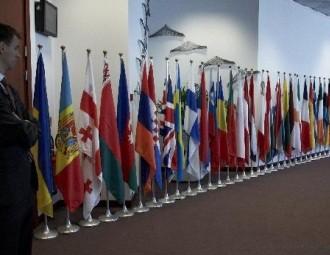Eastern Partnership and CORLEAP: Cities and regions in the EaP countries to be more decentralisated
 Eastern Partnership, CORLEAP
Eastern Partnership, CORLEAP
The Conference of Regional and Local Authorities for the Eastern Partnership (CORLEAP) pronounced the key priorities for the Eastern Partnership countries.
The three priorities are reform of public administration, fiscal decentralisation and regional (territorial) cooperation.
Mayors and regional politicians from the EU and Eastern neighbouring countries gathered together at the Conference held in Chisinau, Moldova on September 17, giving “members the opportunity to discuss the contribution of cities and regions in the development of the EU's Eastern Partnership as well as current challenges, in particular the current stage of the decentralisation process, which included the fundamental issue of fiscal decentralisation”.
Kristalina Georgieva, European Commissioner for International Cooperation, Humanitarian Aid and Crisis Response told the participants that “the regional and local authorities are the best transmission line for the citizens’ needs and aspirations. CORLEAP, a forum rich in diversity and experience, focuses on concrete actions and results, and its members are among the best-placed to make the Eastern Partnership live up to its potential for success”.
CoR President and CORLEAP co-chair Ramón Luis Valcárcel Siso stressed that an important factor enabling multi-level governance to function effectively was greater political and fiscal autonomy for regional and local authorities.
The three EaP priorities - public administration, fiscal decentralisation and regional cooperation - will be addressed in a report to be submitted at the next CORLEAP meeting in Lithuania ahead of the 3rd Eastern Partnership Summit of Heads of State and Government, to be held in Vilnius in November 2013.
The CORLEAP established by the Committee of the Regions (CoR) in 2011 is to bring a regional and local dimension into the EU's Eastern Partnership. It brings together 36 regional and local politicians including 18 from the six Eastern Partnership countries and 18 from the CoR.
-
03.01
-
07.10
-
22.09
-
17.08
-
12.08
-
30.09










































